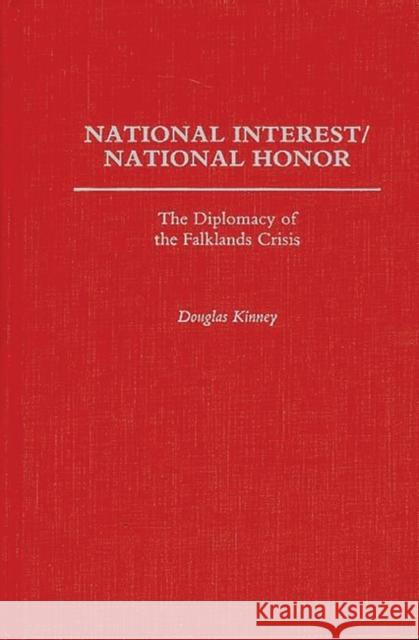National Interest/National Honor: The Diplomacy of the Falklands Crisis » książka
National Interest/National Honor: The Diplomacy of the Falklands Crisis
ISBN-13: 9780275924256 / Angielski / Twarda / 1990 / 392 str.
National Interest/National Honor: The Diplomacy of the Falklands Crisis
ISBN-13: 9780275924256 / Angielski / Twarda / 1990 / 392 str.
(netto: 361,12 VAT: 5%)
Najniższa cena z 30 dni: 376,07
ok. 30 dni roboczych
Bez gwarancji dostawy przed świętami
Darmowa dostawa!
This significant contribution to the literature of international politics and diplomacy assesses the three failed peacemaking attempts during the Falklands crisis of 1982. Douglas Kinney examines the reasons for the failures in negotiations and offers several distinct but interrelated case studies in negotiating and third party mediation of international conflict. Using the Falklands crisis as an example, he examines the unique political context of the territorial crisis; what the Third World insists is the ongoing process of decolonization, the global spread of sophisticated military technologies, and the world arms bazaar. These changes in turn have led to new norms and new means of establishing territory and sovereignty, according to Kinney. Unchecked, they promise more brushfire wars like the approximately 200 the world has experienced in the peace prevailing since World War II.
"National Interest/National Honor" delineates the major stages in the diplomacy of the Falklands crisis, including the bilateral negotiations and General Assembly resolutions, third-party and Security Council preventative diplomacy, a settlement by Peru, and extended negotiations under the auspices of the Secretary General of the U.N. Kinney assesses British and Argentine diplomacy in terms of each country's national interest and honor. He offers a study of British representational democracy, politics, defense, world view, Argentine history and politics as well as the lack of political and diplomatic imagination of both parties at the source of the conflict. This book sets the Falklands War in the context of the many conflicts since World War II, and warns that such wars will likely increase as states seem to feel less and less reticence in resorting to violence in disputes over territory.











